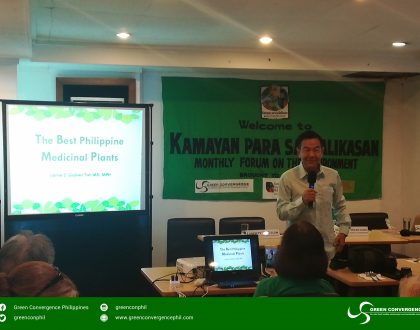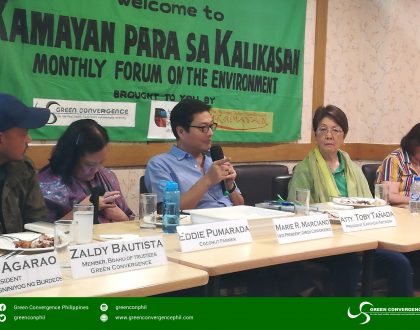System of Rice Intensification: Climate Tolerant Endemic Crop
JESUS LAS MARIAS is an advocate of System of Rice Intensification (SRI), a method of planting and growing rice that reduces costs, increases yields, and avoids the use of agrochemicals. It has been successfully tested in more than 40 countries, and in almost all regions of the Philippines. SRI-Pilipinas is the network that actively promotes SRI trials among Philippine farmers. The network, System of Rice Intensification Philippines, includes farmers, NGO workers, academes and government officials.
The ideal organic rice production technology is easy to follow. It costs less to apply and eliminates the use of chemicals. It makes the rice plant more prolific and more resistant to pests and diseases, and stronger to withstand calamities. The System of Rice Intensification (SRI) is a climatesmart, agro-ecological methodology for increasing the productivity of rice by changing the management of plants, soil, water and nutrients. It follows the principles of early, quick and healthy plant establishment; reduced plant density; improved soil conditions through enrichment with organic matter; reduced and controlled water application; and preference for heirloom rice varieties, not genetically modified organisms (GMOs) or hybrid.
Rice production is constrained by climate change, growing population, declining land area, high cost of inputs and poor drainage and irrigation. The challenge of climate change is to produce more rice with less water and no chemicals. According to the Rice Sufficiency Master Plan of 2009 to 2013, to attain rice sufficiency, there must be improved and efficient irrigation; use of high-quality hybrid and inbred seeds; integrated and sustainable management; soft loans for STW and surface water pumps. There must also be delivery of extension support services; rice seed subsidy; and financing for farm and postharvest machinery.



